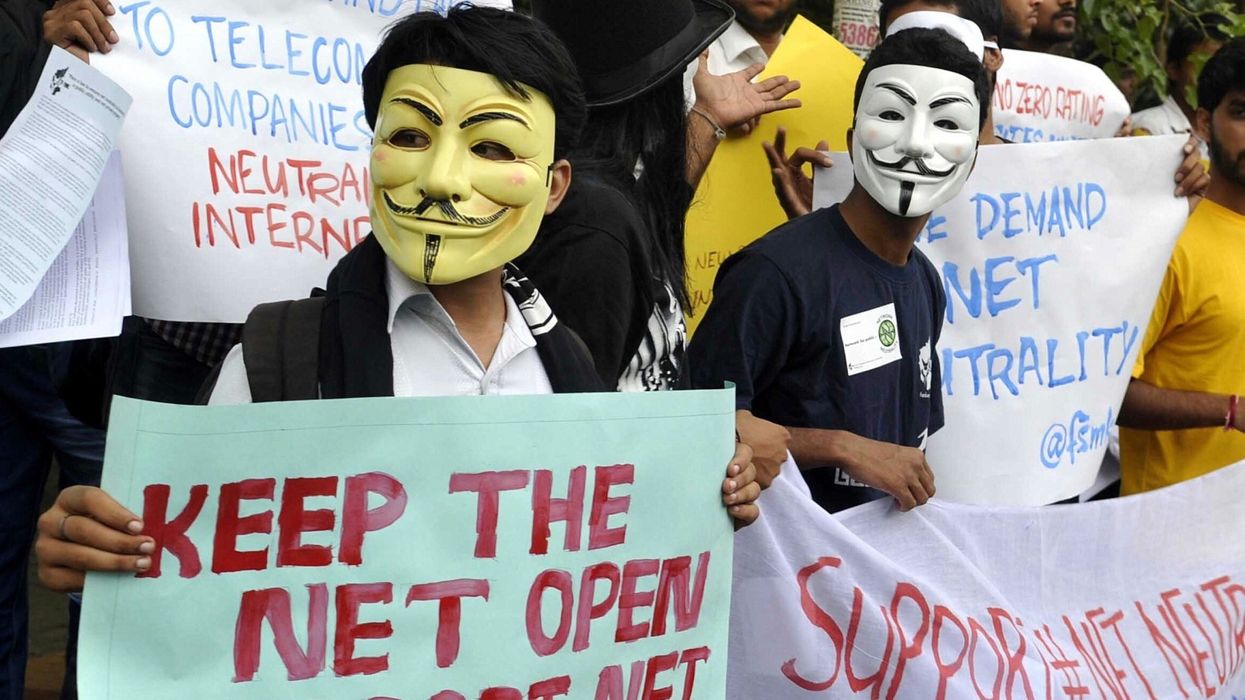What the Latest Net Neutrality Victory Means for Indie Filmmakers
Last week, there was a huge victory for supporters of "net neutrality." For indie filmmakers, this is a life or death issue.

Here's a breakdown of everything indie filmmakers need to know about the latest developments, what it could mean for the future of the industry, and how to get involved.
What is net neutrality?
Net neutrality is "the principle that the company that connects you to the internet does not get to control what you do on the internet." Coined by Tim Wu in a paper for the Journal of Telecommunications and High Technology Law, which was a response to an FCC ruling that cable modem service was different from cable TV. By defining the internet as, "both an 'information service' and 'telecommunications service,'" the FCC limited the revenues cable companies could make from their ISP services, saying, in essence, that the internet is too important to be treated like a product.
Because of its dual nature as informational service as well as telecom product, the salient question is whether or not an ISP like Verizon, Comcast or AT&T can charge more or limit your access to certain websites or do whatever they want, including banning domains or choking traffic and data for business or political reasons. The fact that the ISPs case rests, in part, on a violation of their First Amendment Rights, makes it another example of the long war of corporate personhood.
The internet is too important to be treated like a product.
What it means for filmmakers
Two years ago, our own V Renée reported on efforts on the parts of sites like Netflix, Vimeo, Kickstarter, and VHX in favor of Net Neutrality, culminating in a day of protest where they slowed their sites down in imitation of what a world where ISPs would be able to control the internet and its access. Essentially, whoever paid would get preferential treatment, and so while major sites would no doubt survive, it would not only be disastrous for smaller sites like Fandor, that curate and stream indie films. Netflix and Amazon and the other giants would no doubt look at their balance sheets and conclude that it was only worth it to provide access to the biggest blockbuster content, since in an effort to maximize profits, ISPs would be making it economically inconvenient to support indie film. But, and more important for all citizens, they could make it inconvenient to access, say, information about a political cause they didn't like, or policy that wasn't in their favor.
This is why net neutrality is a big deal. A seriously big deal. All creators of indie content need to be aware of this issue because, in the new digital ecosystem where filmmakers are reliant on the internet to get their content seen, there are precious few protections keeping independent artists from being steamrolled by corporations spouting arguments that contain more logical fallacies than a sleepy four-year-old.
What happens now
After battling back and forth for over a decade, a judge for the US District Court of Appeals just ruled in favor of the FCC and against the plaintiffs, including AT&T. According to Ars Technica,
"In addition to enforcing net neutrality rules against blocking, throttling, and paid prioritization, the decision allows the FCC to continue regulating fixed and mobile broadband providers under the common carrier provisions in Title II of the Communications Act."
In the full text of the decision, the judge wrote of one possible example of ISP information blocking:
“A broadband provider like Comcast might limit its end-user subscribers’ ability to access the New York Times website if it wanted to spike traffic to its own news website, or it might degrade the quality of the connection to a search website like Bing if a competitor like Google paid for prioritized access."
This case has a good chance of making it all the way to the Supreme Court, so it's not over yet. If you're interested in getting involved, you can check out sites like Battle For the Net, and we'll keep you posted on this vitally important issue for the indie film world.
Source: Public Knowledge











